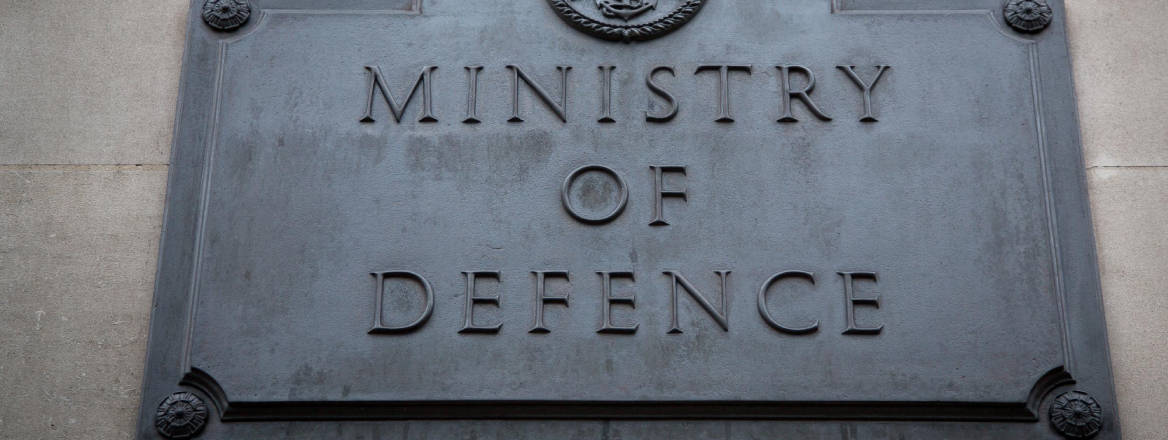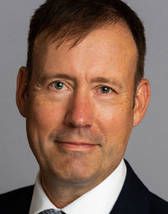Joint Forces Command to Become Strategic Command
While the changes to the organisation of UK Defence are welcome, the long-term effects remain to be seen.
The renaming and potential transformation of the UK’s Joint Forces Command (JFC) to Strategic Command was announced by the then Defence Secretary Penny Mordaunt on 18 July, at the RAF Air and Space Power conference. Sandwiched between pronouncements about test pilots joining British entrepreneur Richard Branson’s Virgin Orbit programme and the UK becoming the first international partner in the US-led Operation Olympic Defender (a multinational coalition formed to strengthen deterrence against hostile actors in space), this change has the potential to improve significantly the management of defence at the highest level. However, if handled badly, it could result in the expenditure of considerable staff effort for little or no subsequent improvement to staff output.
In 2011, as an adjunct to the 2010 Strategic Defence and Security Review, Lord Levene undertook a review of the structure and management of the Ministry of Defence (MoD). His report, Defence Reform, included 53 recommendations, one of the key ones being the creation of a 4-star JFC, to strengthen the focus on joint enablers and on joint warfare development. In short, the commander of JFC should be the departmental ‘champion’ for ensuring joint enablers across Defence are appropriately resourced. JFC achieved full operating capability in April 2013, and was completely integrated into the construct of the MoD through the development of the Defence Operating Model (DOM).
In December 2018, the MoD published its Modernising Defence Programme (MDP) report, following a review that was intended to modernise and strengthen the armed forces against emerging threats and put Defence on an enduringly affordable footing. A key conclusion of the report was that Defence must think beyond the three traditional domains – land, maritime and air – to also conceive of its joint force as consisting of space and cyberspace. This was reinforced by General Nick Carter in his Annual Chief of the Defence Staff Lecture 2018 at RUSI, where he confirmed ‘We will frame our modernised force … through the integration of five Domains … with information at the core’. Against this backdrop, and as part of wider work to re-examine the DOM, an MoD internal review team undertook a study into the current functions and outputs of JFC. It is the recommendations from this study, which have not been released publicly, that have led to the secretary of state’s announcement.
At this point, there are few details in the public domain of what the roles of the new organisation will be; however, it will be to the fore in the UK’s response to ‘grey zone’ threats and is expected to assume a greater role leading the integration of the five warfighting domains identified in the MDP report, as well as overseeing the armed forces’ digital information network. It will also retain its existing command responsibilities for the UK’s Permanent Joint Operating Bases and ongoing and contingent operations. In an interview with Defense News in March 2019, the former Vice Chief of the Defence Staff (VCDS), General Gordon Messenger, provided additional insight into the reasons for the change and what it hoped to achieve. Messenger confirmed that JFC needed to be viewed more of an agent of the MoD’s head office and, as such, it should be given the right levels of authority to drive improvements that aim to make the Royal Navy, British Army and RAF capability programmes more coherent. Significantly, he confirmed that ‘[g]etting the JFC in a place that is separable from the single services, and acting as an agent of head office, driving coherence and interoperability, is where we’re trying to move it to’. And therein lie the challenges.
As part of the MoD’s existing operating model, the single service chiefs are responsible for the generation and development of forces within their services’ environment to meet Defence needs and have been delegated the relevant budgets accordingly. It is not clear how this current construct will align with the aspiration to integrate output across the five warfighting domains. What is clear is that the single service chiefs, having been given far greater freedom of manoeuvre under Levene’s Defence reforms, will be unlikely to concede willingly any authority to the new Commander Strategic Command as he attempts to improve the coherence of their capability programmes. Moreover, as the donor organisations for manpower, they will have a considerable say in the new organisation’s own freedom of manoeuvre, in same way as they currently do for JFC.
In addition, the aspiration to transform Strategic Command into an agent of MoD head office will inevitably bring about a coming together of the responsibilities of VCDS and Commander Strategic Command. Unless there is a clear distinction between the Vice Chief’s authority to manage Defence alongside the chief operating officer, on behalf of the Chief of the Defence Staff and the permanent secretary, and Commander Strategic Command’s terms of reference for leading and managing the organisation, there will be friction at the highest levels of the department, which can only lead to confusion at every level below.
Finally, the management of UK Defence is currently in the throes of considerable change, with the revision of the DOM, the introduction of functional ownership, and the delivery of strategic transformation programmes for acquisition, information, people and support. The touch points between these initiatives and the new Strategic Command will be considerable, inter-related and complex.
In conclusion, an update to the JFC construct envisaged by Levene is a good thing – a lot has changed since April 2013 – although whether the move to a Strategic Command will truly be transformational, only time will tell. Closer alignment with MoD head office, and the authorities needed to enable the agent role, will generate significant challenges, almost certainly over and above those identified here. Overcoming those challenges will not happen overnight and will require a genuine willingness from the single services to accept change. More importantly, they will also require a considerable investment in both time and personal capital at the very top of the MoD. If these are forthcoming, real improvement in the management of UK Defence is possible. If they are not, little will change.
Andrew Curtis is a retired Air Commodore and RUSI Associate Fellow in the Defence, Industries and Society Programme.
The views expressed in this Commentary are the author's, and do not represent those of RUSI or any other institution.
Air Commodore (Ret’d) Andrew Curtis OBE
RUSI Associate Fellow, Military Sciences


